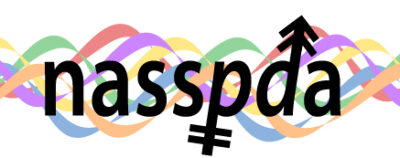Terms Amateur & Professional
Originally published in 2016 NASSPDA Newsletter
Posted: January 6, 2022
By: Benjamin Soencksen
In the global world of dance generally no distinction is made between a professional and an amateur dancer. Dancers distinguish themselves by their achievements and experience. Everyone continues to take classes from everyone, young dancers get instructed by older dancers and vice versa. Any distinction is fluid and depends on circumstances. The same-sex partner dance community has from the start taken the same position. NASSPDA’s Competition Rules start with the statement that one of the differences to the mainstream world of partner dancing is the lack of “distinction between amateurs and professionals,” which is in alignment with its counterpart in Europe, ESSDA. Both organizations support “the categorization of dancers by their proficiency level” and strive “to ensure that the values of inclusion, participation, and fairness are upheld in every same-sex partner dance competition,” a philosophy in line with and propagated by the Gay Games.
Historically, mainstream partner dance organizations always had very distinct lines of separation between a professional, someone that earns a living through dance (teaching, performing and competing), and an amateur, someone that receives no remuneration through dancing. These lines have significantly blurred over the past decades. However, the concept of an amateur paying a professional to compete with, developed and for the most part only practiced in the USA, is still a very important financial aspect of all competitive events in this country.
Now, it isn’t unusual, though possible, that a same-sex dance couple consist of one dancer that is defined in mainstream as a professional, dancing with a partner that is defined as an amateur, though neither pays the other to dance with, therefore being equal partners (there is no guarantee that by those mainstream definitions one is a better dancer than the other). Such a couple shouldn’t and isn’t considered a Pro/Am couple, as defined in mainstream. But if within that scenario one “bought oneself an excellent trained partner to win one’s category,” that wouldn’t be fair in competition to any other couple on a purely financial, if not proficiency level.
One can dispute the validity of the existence of Pro/Am competition within Dancesport, but it is indisputably a part of and helps to sustain the competitive scene in the USA. In order to incorporate this form of competition (only the amateur gets judged, theoretically) NASSPDA uses now the terms “student” and “teacher,” which seems to define more correctly the relationships of such couples.
